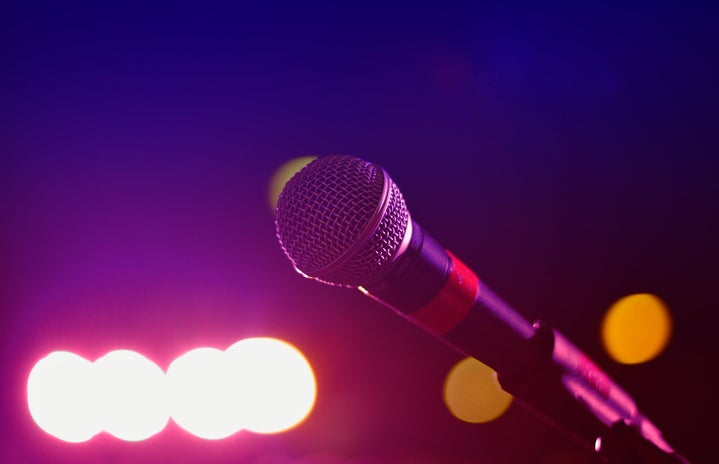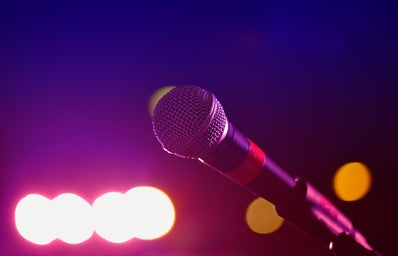Half religious rite and half death note, Horses was born from New York’s underground punk scene in the winter of 1975. And this spring, Patti Smith and her band take it on the road for a continuation of its 40th birthday tour.
Horses was, and still is, the intoxicating sound of everything cracking apart – the girl washed up on “Redondo Beach,” the sky always threating to crack and fall, and Hendrix and Jim Morrison really, truly, dead and gone. In 1975, Horses mapped out our losses and sat at the cusp of a new age – unapologetic in its strangeness and romanticism.
At its youngest, Horses was about some version of god, and being poor and hungry. It was, and is, a kind of reckoning that negotiates light and loss; absence and revolution.
Horses is dark in many of its corners – apocalyptic, even. But for all its darkness, it never unchains itself entirely from the promise of something sweeter. Horses is, after all this time, a thing of the present.
And a thing of hope.
It is as much a living thing as Smith herself. And on March 12th at the State Theatre in Cleveland, it wrestles itself under the lights, finding its legs again in the chaos of this new world. Forty years ago, Horses felt big – a cavernous poem on the inside. And now, it feels even bigger.
Smith rolls the record open by claiming her sins, letting Jesus himself know that she won’t need fixed or forgiven anytime soon. She tears through “Gloria,” “Redondo Beach,” and “Birdland” with a kind of hunger and grace I once thought live music had lost altogether. She is a force, and a joy to witness.
Horses is certain of itself, and so is Smith. They are splinters of dissent in the age of Trump, and to watch them find footing in the resistance is pure magic.
Halfway through Horses, Patti Smith takes flight.
“I’ll buy you a jet plane, baby,” she howls over a bed of feedback, “and take you through the stratosphere.”
It is spark and ritual – every bit as holy as a good old fashioned sacrifice. Mic pinned between both palms, Smith twists to spit behind her and rides “Free Money” in like a wave she made herself. It rumbles up from the ocean floor. Everything churns.
Before and after “Break It Up,” Smith gives Horses room to breathe. She tells the story of Jim Morrison visiting her in a dream, cracking through his own headstone – and then another about running into Jerry Garcia at a festival in Amherst.
Smith is reachable and kind – so much like a friend you’ve always known. And yet, not for a single second does she stop conducting electricity. She draws a crowd that is here for every moment. They want her, and Horses, in the same way we all want one true thing in the face of this constant bigotry and turmoil.
Halfway through “Land,” Smith catches fire, and Horses breathes its own name out over the crowd. It cracks its joints and lives in all the right ways. Johnny is Smith’s vehicle in this new age, her purveyor of culture and truth – humming with a curiosity that is at once familiar and surprising. “White shining, silver studs with their noses in flames,” Smith chants, ready for what may come.
“He saw horses, horses, horses, horses.”
Smith’s apocalypse looms. And when the sun explodes, she is at the humming epicenter.
I get the feeling that Horses has always existed somewhere within her. And when she closes the album with “Elegie” – it isn’t so much a real ending as it is an acknowledgment of the absence and loss we all carry quietly within the softest parts of ourselves.
Smith wrote “Elegie” for Hendrix – but it is for us, the living, just as much as it is for the dead. When Smith calls roll, David Bowie, Robert Mapplethorpe, and the father of her children all make the list. From every corner of the theatre, people speak the names of those they’ve lost. To say their names out loud is a moment of relief from a long and heavy weight.
If there was any doubt about Horses’ place in the age Trump, Smith clears it up with the remaining set. She names “Ghost Dance” in honor of the native protestors at Standing Rock. And in “Citizen Ship,” she begs Lady Liberty herself to lend a hand to the refugees and immigrants who have been systematically oppressed for centuries.
She delivers Emma Lazarus’ own words from “The New Colossus” at the base of the statue. “Give me your tired, your poor,” she chants. “Give me your huddled masses.”
When Smith howls, “The people have the power to redeem the work of fools,” – and the crowd swells and bursts. They raise their closed fists to the stage.
They need no further explanation.
They know who the fools are.
Here, Smith is all snarl and fang, and the same thing that gives Horses life arrives again with “People Have the Power” in full color. It is a lesson in punk and poetry as real revolution – always made by and for the true outsider, and always ready to take the fool out at the knees.
“Fuck Trump,” Smith shrieks – and the crowd echoes her in perfect disunion, again and again.
Smith encores with The Who’s “My Generation,” a track she recorded live at The Agora Theatre in Cleveland, in January of 1976.
She tears every string from the headstock and growls through the second verse with gravel in her throat. She mimics Daltrey’s stutter with a blind fury that reworks the very heartbeat of the song itself and plants it squarely in the moment of its utterance.
“The things they do look awful c-c-c-cold,” she wails.
“I hope I live ‘til I get old.”
And there is Horses’ breath and pulse: Smith’s resolve to stick around and show the kids how it’s done – to tell no lies and make no excuses.
In this new age, Patti Smith gives a lesson in the nature and value of truth – one that can be both intellectualized and felt distinctly at the center of one’s chest – one that begins and ends with Horses.
Smith’s performance of Horses at the State Theatre is one giant act of hope and defiance, a raucous exaltation ringing out in the age of Trump. It, and Smith, are here to remind us all that art and love are never worthless. And despite what we’re so often told, we’re still able to recognize real truth when we encounter it.
It’s there – waiting.
We only have to reach out and wrap it in our fists.

